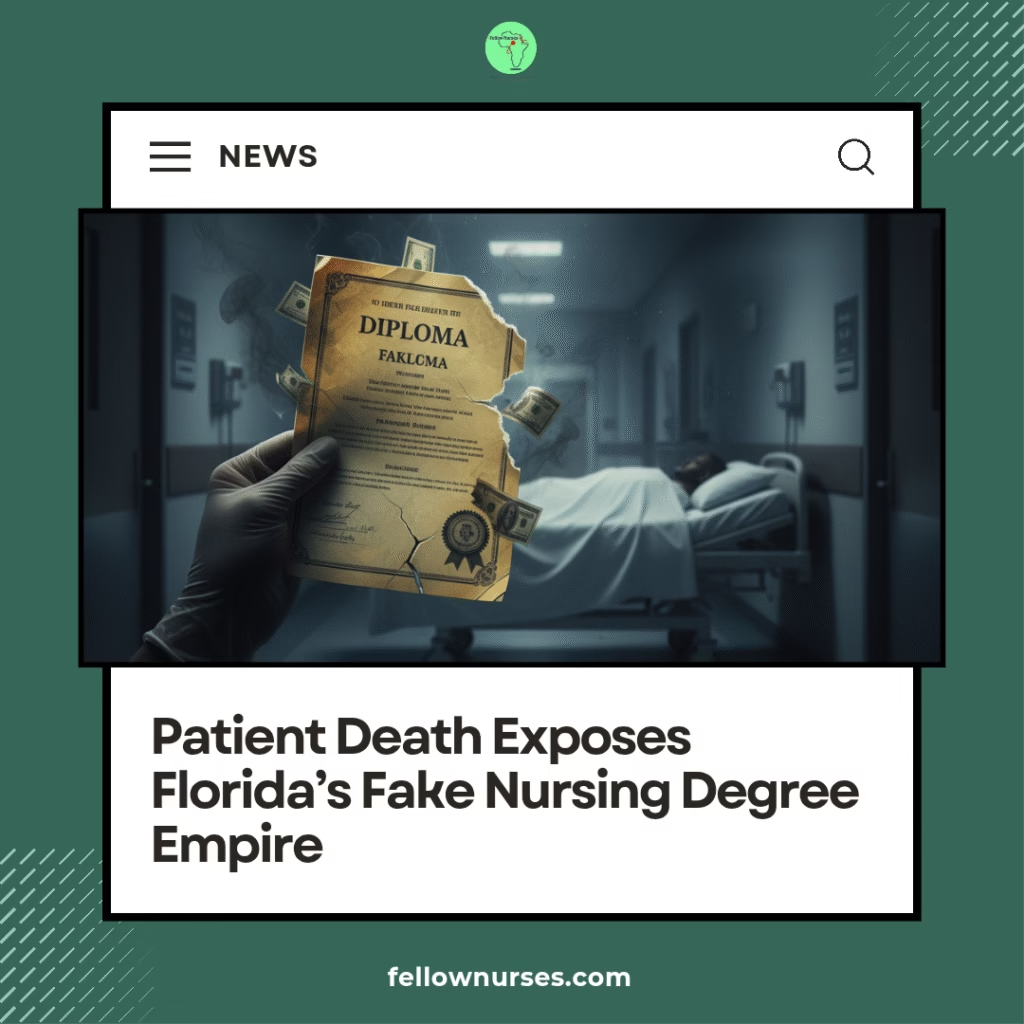
The story reads like something out of a thriller, but it’s real—and its consequences stretch far beyond U.S. borders. Federal prosecutors in Florida say an “industrial-scale” fraud operation churned out more than 15,000 fake nursing diplomas, collecting over $220 million from students who wanted a shortcut into the profession.
Now, for the first time, authorities are linking this fraud to a patient’s death.
The Case That Shocked Prosecutors
Carleen Noreus, 51, a South Florida school operator, stands accused of selling phony diplomas and transcripts through two shuttered nursing schools. Prosecutors allege that one of her buyers—a nurse who only took a few part-time classes—used a fraudulent associate’s degree to pass the licensing exam, secure a job as a traveling registered nurse, and eventually contribute to the death of a patient at a Missouri hospital in 2023.
Court filings say the nurse ignored critical signs of atrial fibrillation, mishandled an IV, and failed to respond to repeated emergency calls. The patient died within hours.
While Noreus herself is not charged in the death, prosecutors want to use this tragic case to underscore the public safety risk of unqualified nurses slipping through the system.
Operation Nightingale: How the Scam Worked
The FBI investigation, known as Operation Nightingale, uncovered a network of more than 20 fraudulent nursing schools in South Florida. Students paid between $10,000 and $20,000 each for fake diplomas and transcripts that claimed they had completed required coursework and clinical hours.
With these papers in hand, they sat for licensing exams in Florida and, under the Nurse Licensure Compact, gained eligibility to work in 41 other U.S. states.
The problem? These were not real nurses. They were paper-qualified imposters entering hospitals, nursing homes, and clinics.
A Global Ripple Effect: Nigerian Nurses and the UK NHS Scandal
The scandal didn’t just rock the United States. Investigations tied to Operation Nightingale reached across the Atlantic, where the UK’s Nursing and Midwifery Council (NMC) launched probes into over 700 Nigerian nurses and midwives suspected of obtaining fraudulent credentials.
This sparked outrage in the UK’s National Health Service (NHS), where migrant nurses already face backlash amid workforce shortages. Critics argued that fake credentials risk displacing qualified local nurses and eroding trust in one of the most respected professions in the world.
Why This Matters
At its heart, this case isn’t only about fraud—it’s about patient safety. Nursing is built on rigorous training, clinical competence, and trust. When shortcuts replace standards, lives are literally at stake
- Patients suffer when unqualified individuals deliver care.
- Communities suffer when trust in healthcare systems erodes.
- Legitimate nurses suffer when their hard-earned credentials are devalued by fraud.
The Legal Fight Ahead
Noreus has pleaded not guilty and is set to face trial in December 2025 in Fort Lauderdale. Her lawyer argues that she is being unfairly demonized and that evidence linking her to a patient’s death is “prejudicial.”
But prosecutors insist this case is different—because it shows the real-world danger of letting fraudulent degrees slip through the cracks.
The Bigger Question
This scandal raises urgent questions for regulators worldwide:
- How do we tighten verification systems so fake credentials don’t make it past licensing boards?
- How do we balance the desperate global demand for nurses with the need to ensure rigorous training?
- And perhaps most importantly: who pays the price when we fail?
For now, one truth stands out: healthcare cannot survive on paper nurses.
Fellow Nurses Africa is the independent voice of African nursing. We educate, inform and support nurses across Africa.










